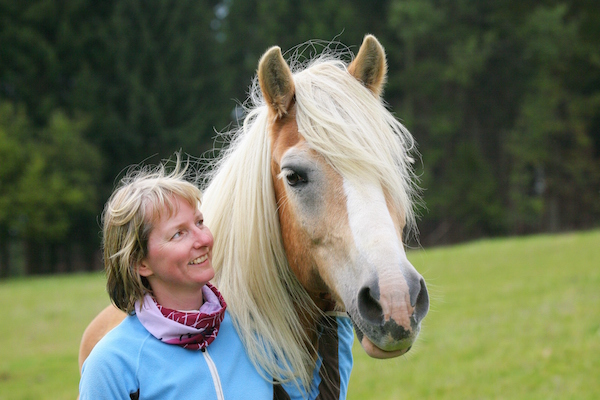

I treat the horse’s teeth (molars and incisors) after a thorough diagnosis, which is best done on a separate appointment before the treatment. I work on non-sedated horses with my manual rasps.
For horses with more severe issues, I will use sensitive machines and the horse will have to be sedated by a veterinarian. I appreciate if the veterinarian that knows the horse induces the sedation. In case this is not possible, I will contact and work with an appropriate vet in your area.
My goal is an optimal occlusion, that is, optimal contact of the molars and incisors, and a balanced mouth and jaw area. So it's not just about rounding the hooks and edges, but also about the balance between temporo mandibular joint (TMJ), molars and incisors. When the incisors are touching, the molars should have loose contact to enable optimum food intake. Too long incisors, creates a distance between the upper and lower molars, making the crushing of feed only possible under very high pressure. This pressure causes pain in the TMJ and the incisors, resulting in discomfort of the horse. This most often is recognized by the rider as issues bending or loosening the neck.
This is the reason, why the occlusion of the molars needs to be checked and overlong incisors need to be shortened in a quality dental treatment. Overlong incisors are most often caused by not enough time spent grazing.
I had to wait until I was 11 years old, to start vaulting and soon later riding horses (In East Germany it was very hard to get access to horse riding facilities). Within a year, the German-German Wall had now fallen; I started taking care of horses. From now on school breaks had to be enough to get homework done and at home I was only seen to eat and sleep or on Sunday afternoons when the stable was closed.
In 1992 I was so glad to finally be able to move from the "stubborn, fat Haflingers" to the elegant Warm bloods. From my ambitions a small, cheeky, young Haflinger, that had been moved to our club, fortunately didn´t know. After two months, only three years of age, still having panic attacks when ridden, he was supposed to become a schooling horse unless someone would lease him. Well, I was indeed really no fan of Haflingers but hard hearted I was even less. And so we became a team for almost 2 years, teaching both of us everything we needed and just having a great time.
Today, all 24 years later, I owe this horse pretty much my entire horse knowledge. He has led me to horsemanship and horse teeth. I am grateful that I was finally able to buy him 5 years ago after he has been a great schooling horse for many kids! Mozart did stay in Germany though; we found a wonderful new family for him, to not have to fly him over here.
Through Mozart I realized, just how important proper dental care for horses carried out by well educated practitioners or vets is. I decided to undergo training to become an equine dental practitioner next to my "normal" job as a chemical engineer. In the hot summer of 2013, I and just one other student went through sweaty weeks of intensive schooling by Dr. Martin Grell (instructor and former principal of IGFP) and his colleagues in Berlin. Here we gained knowledge and craftsmanship needed to become great equine dental practitioners. Since then I extend this knowledge further with every horse I can help and truly do enjoy what I am doing.
